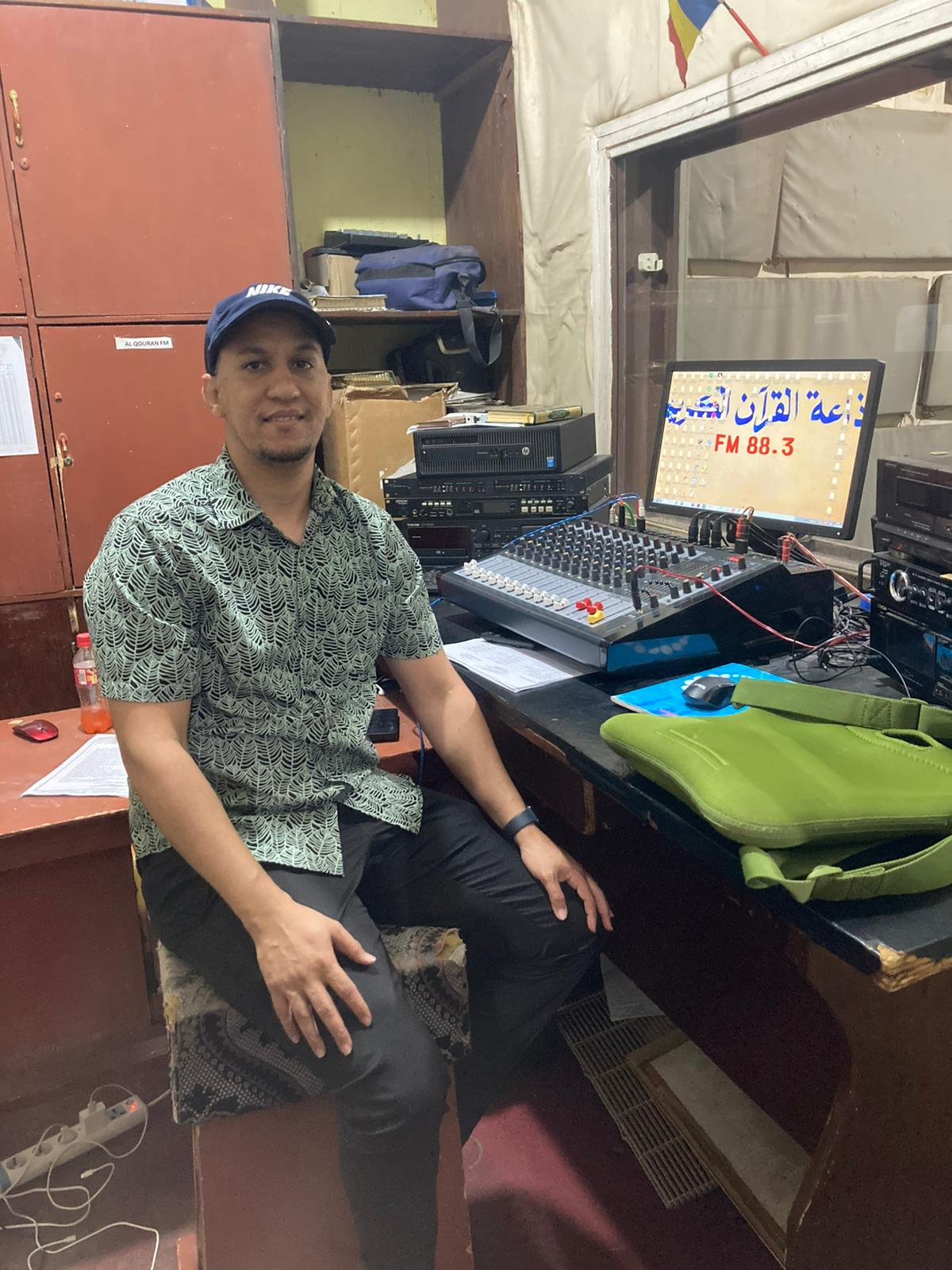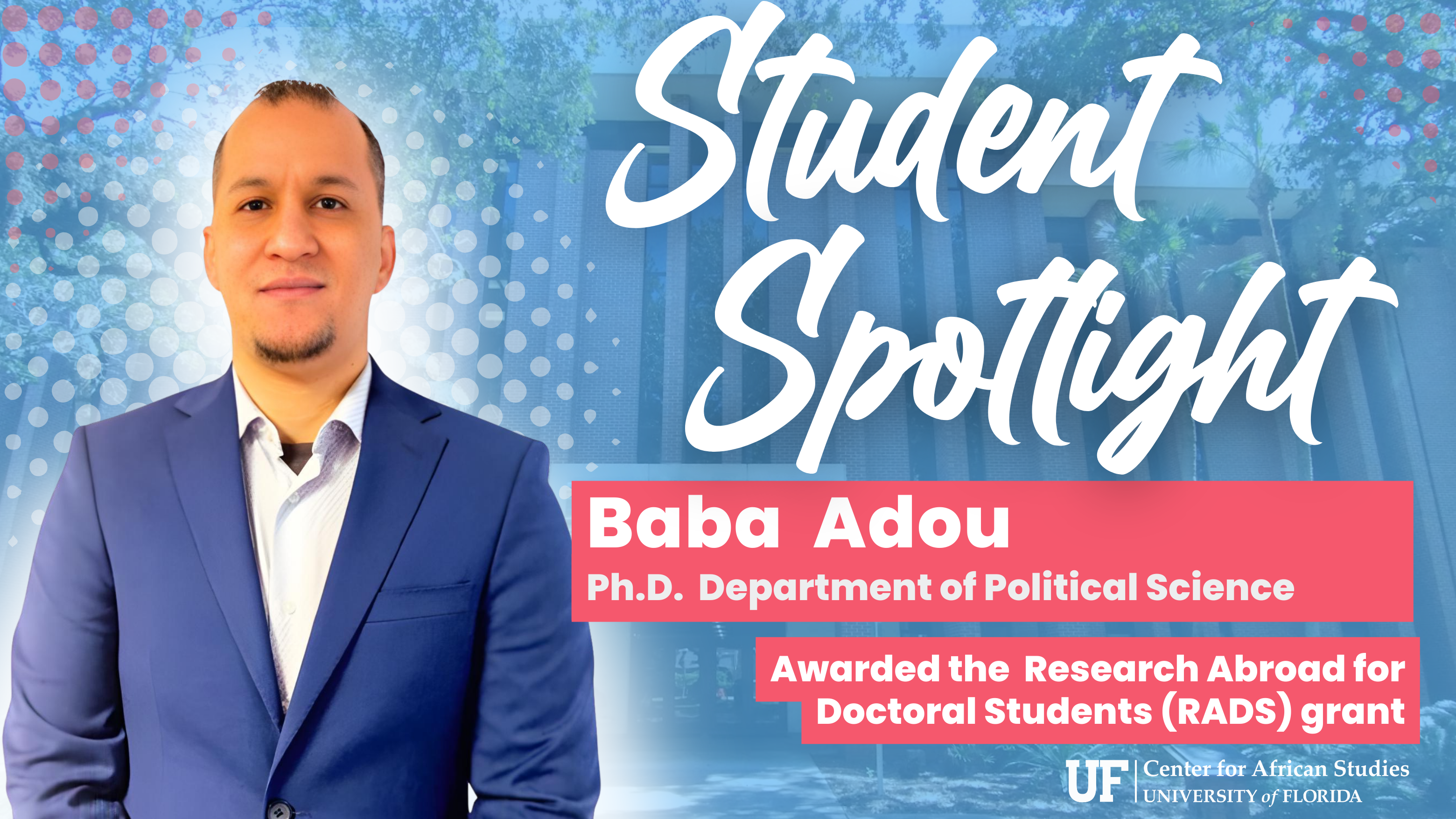Baba Adou was born and raised in Mauritania. He earned a BA (Maîtrise) in English from the University of Nouakchott and an MA in Global and International Studies from the University of Kansas, which he attended as a Fulbright Scholar. He is a 4th-year Ph.D. student in the UF Department of Political Science. His research focuses on religion and politics in the African Sahel. Baba is also a research assistant at the Center for Global Islamic Studies and a research associate with the Sahel Research Group (SRG) at the Center for African Studies, and a reviewer for the Center’s African Studies Quarterly. As part of the SRG, he contributes to the weekly News Brief team, covering developments in Mauritania and Niger. He is also involved in organizing academic events, including symposia and discussions that examine key issues in the region, such as identity, ideology, and political dynamics in the Sahel.

Baba Adou’s dissertation project examines the evolving relationship between the state and religion in the African Sahel, particularly in the context of regional insecurity. Through a comparative historical analysis of Chad, Mali, Senegal, and Mauritania, his research examines how these states have increasingly engaged with religion as part of their efforts to address religiously motivated insecurity. Central to his work is understanding how this process of appropriating the sacred is shaped by historical legacies of state-religion interaction.
The project explores the idea that these variations stem from historical and social factors that have shaped state-religion relations since the post-independence period. His work examines how these factors influence current state strategies in integrating or co-opting religious influence to achieve stability and legitimacy.
Baba’s research moves beyond the dominant dichotomies of Salafism vs. Sufism and local vs. foreign Islam, which he argues are inadequate for understanding the complexity of religion-state interactions. He highlights:
- Cooperation between Salafis and Sufis, challenging assumptions of inherent conflict.
- The fact that Salafism is not inherently linked to political violence.
- Instances where Sufis demonstrate greater political engagement than Salafis.
He also emphasizes that these categories are not fixed but evolve through their interactions with one another and the external world. His project also underscores how the state has become an active player in religious affairs, especially in the post-2012 period, through initiatives such as:
- Creating ministries of religious affairs.
- Organizing de-radicalization workshops.
- Training imams.
- Promoting narratives of “peaceful” or “moderate Islam.”
Beyond the actor-centered approach, Baba’s work examines how religious ideas—such as opposition to secularism, debates on religious education, family law, and public morality—shape both religious actors and the state itself. Rather than leading to divisions and disagreements among religious actors, these ideas often place the state itself in opposition to religion.
Baba’s research contributes to understanding the dynamic interplay between religion and politics in the Sahel, offering insights into how state-led religious engagement can have implications for governance and societal cohesion. By exploring how states navigate these relationships, his work will inform policymaking and provide valuable lessons for addressing religiously motivated insecurity in the region. His findings will also advance academic discussions on religion and the state by proposing a new framework that transcends traditional secularization and securitization paradigms.
Baba has conducted preliminary fieldwork in Niger, Chad, Mali, and Mauritania and plans to carry out further field research to enhance his understanding of state-religion dynamics in the Sahel. Upon completing his PhD, he aspires to pursue a career in academia while also producing policy-relevant research on Islam and the state in the region.

